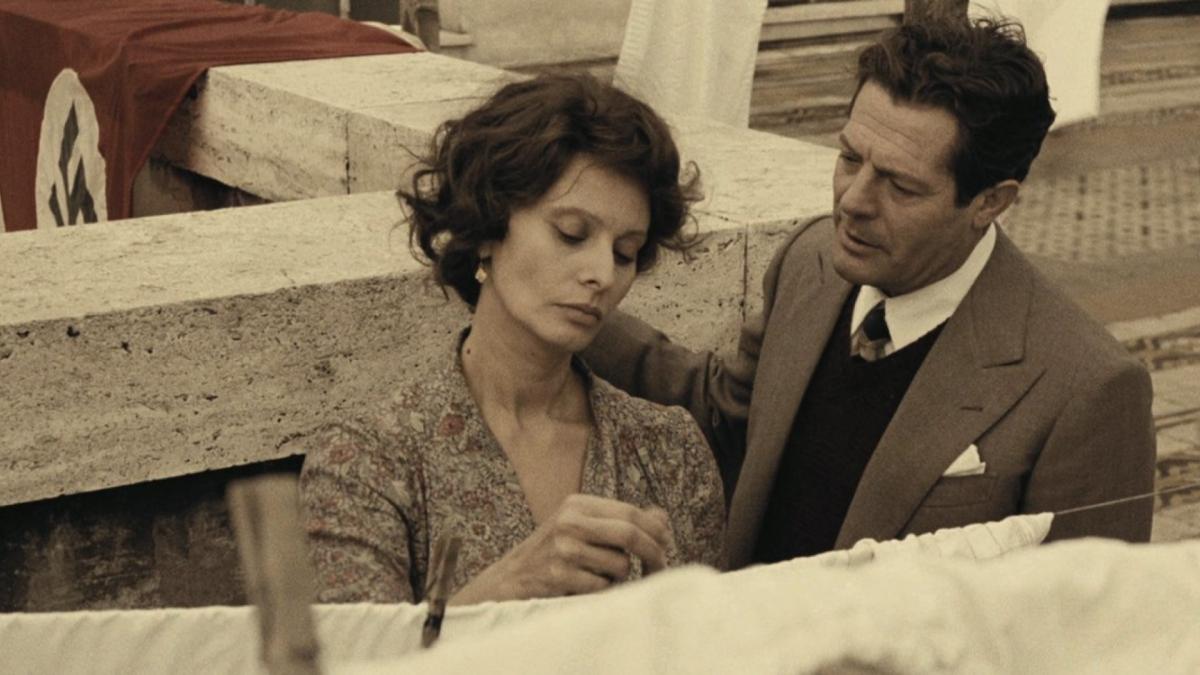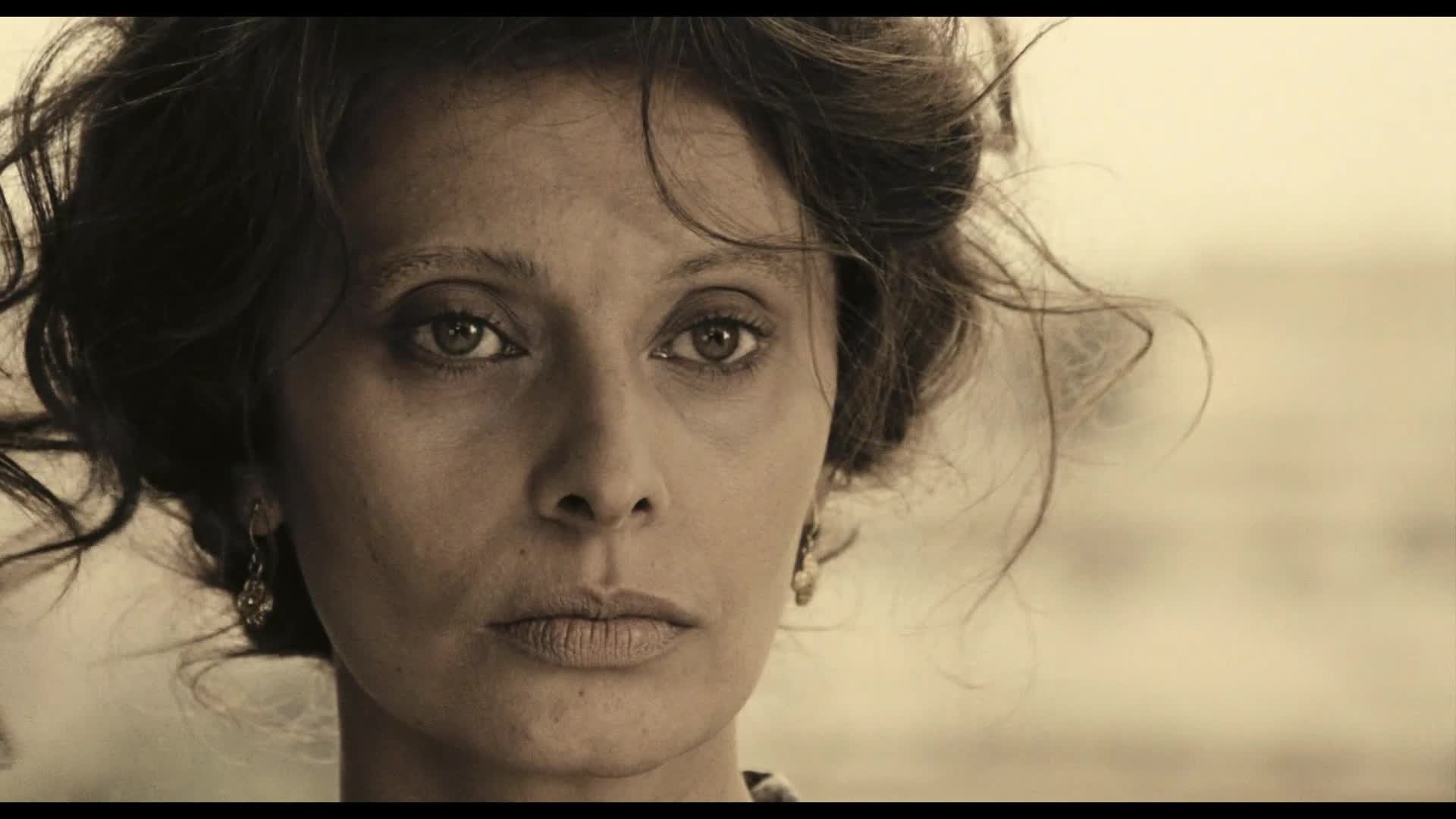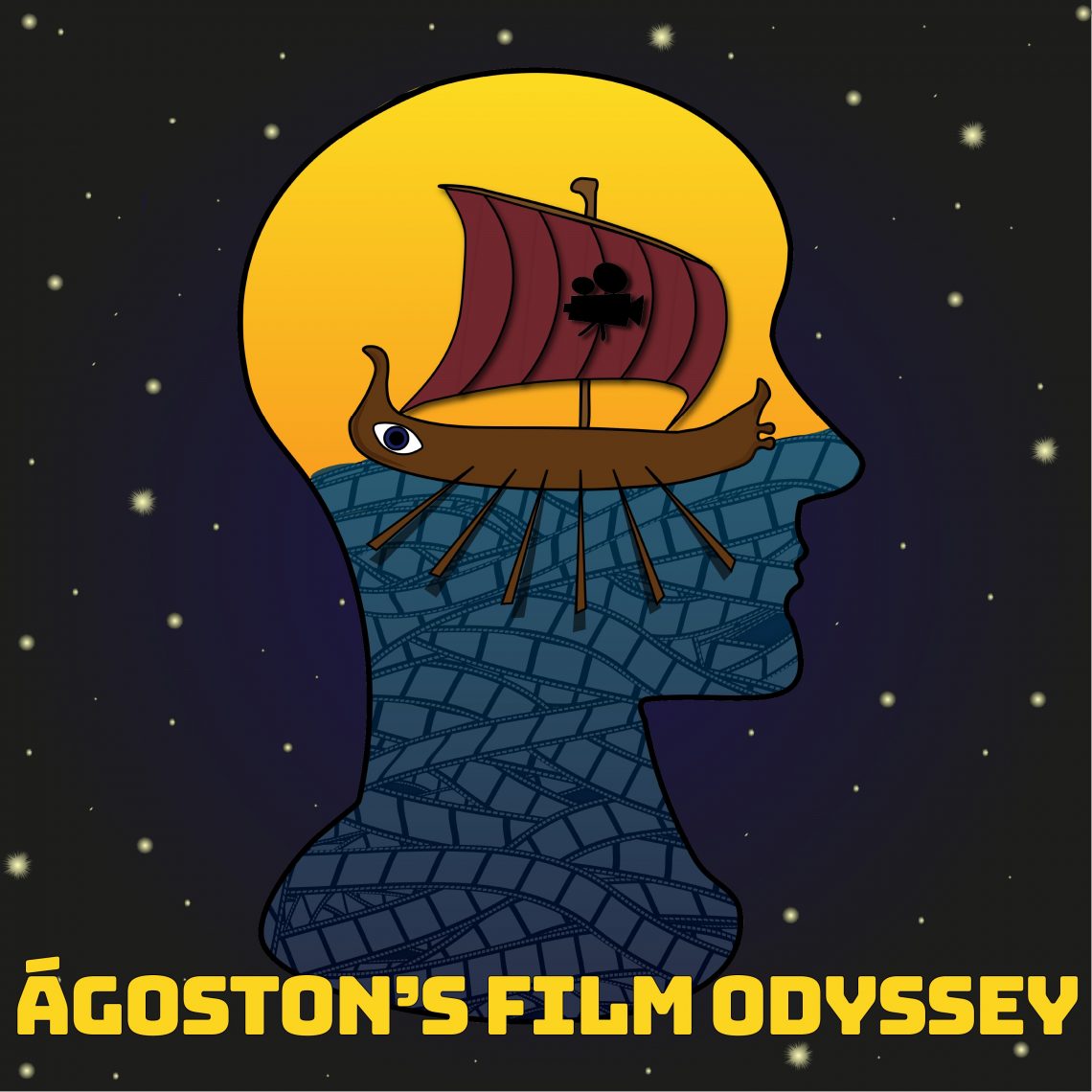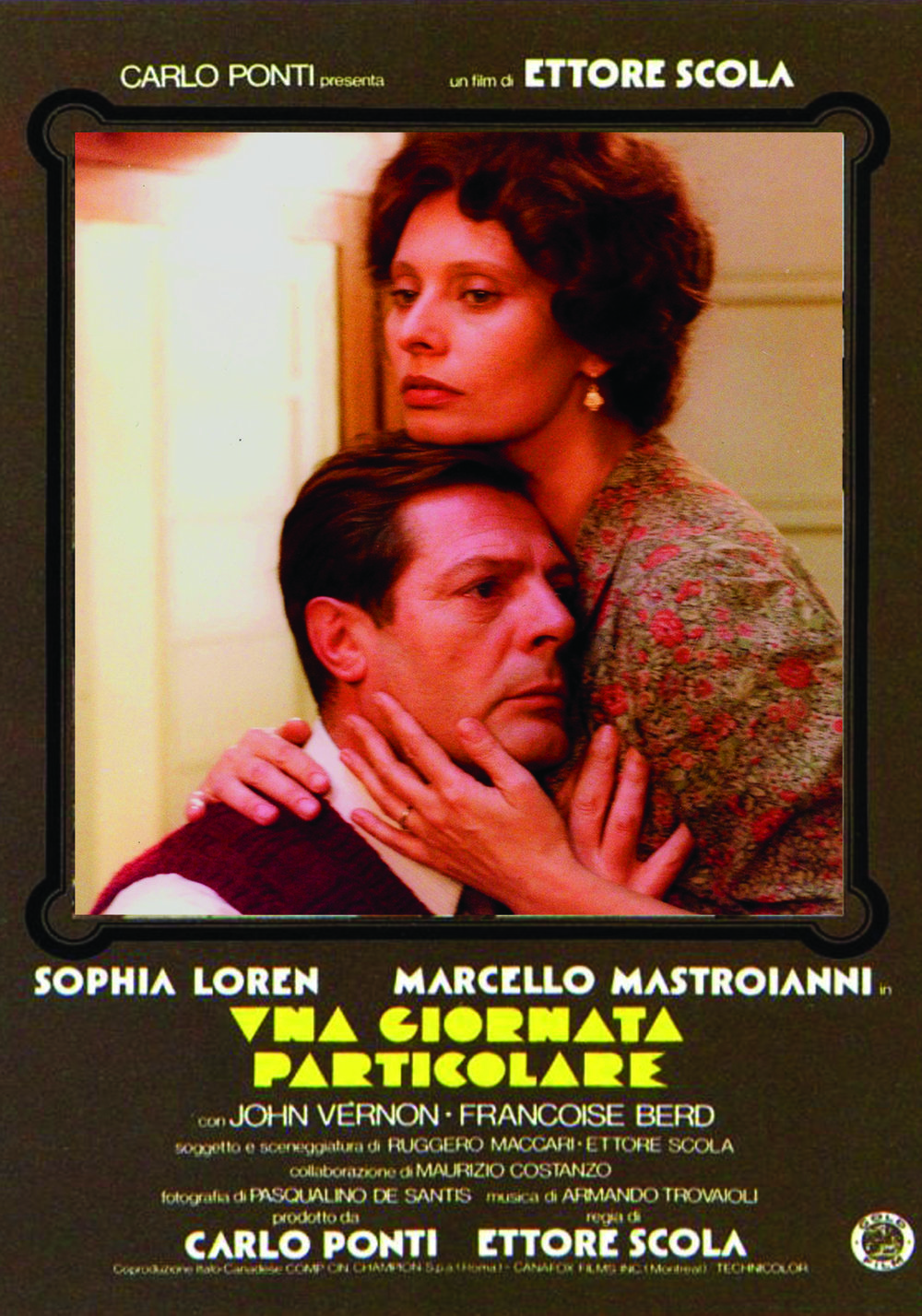Ettore Scola’s A Special Day (1977) is a wonderful piece of Italian cinema that enraptured me with its aching beauty and glued me to the screen with its poetry of the everyday.
In the age of the internet we go to distant worlds to dream. These often look faster and more high-tech than our current one, but sometimes depictions of past modernity can look even more remote in their simplicity. Portrayals of the more measured, present and elsewise lonely and alienated existence of humanity in the previous century can provide us not with escape, but a stronger sense of reflection. It is an impression of the past we think we know and can use to better understand our present where we forgot how precious it is to simply be. This recognition gave a haunting ambiance to my experience of watching this film.

The story takes place in the single day of 8 May 1938, when Hitler has visited fascist Rome under the rule of Mussolini. An ominously grey housing block becomes deserted by its citizens who rush to the parade with jingoistic pride in their bosoms, leaving neglected housewife and mother of six Antonietta (Sophia Loren) and forlorn and ruined radio personality Gabriele (Marcello Mastroianni) behind in their flats that face each other. Personal reality curiously peaks out from under the shadow of the historical when the family bird escapes from Antonietta’s grasps to land on the ledge where only Gabriele can help retrieve it. The flight of the bird looking for freedom is the telling catalyst of two people doing the same under the rule of fascism.
Seemingly all would be in place for a scorching romance between two aging and lonely but still beautiful movie stars, but A Special Day is something else entirely. Many of the film’s scenes thoughtfully examine the questions of how we are perceived by others, who we wish to appear as and who we really are. The gender roles of the depicted period but also of the time when the film was made become strongly subverted. The double monodrama shows us private moments silently duelling to connect, disconnect and reconnect two people who in this shared microcosm might as well be the only ones left alive on earth. They play out their personal narratives casting the other person into a role they wish to see them as, then, as personal realities crash into one another, they learn to see, love and fully accept each other.
Gabriele is a homosexual social outcast, who lost it all and sees precious little reason to go on. He is a disillusioned intellectual, a curious child, a strange, desperate man looking for someone to tell him it’s not too late. Antonietta is uneducated, bored, fed up with her glorified maid status as mother of six and sexual object of a boorish and philandering husband, she wants to connect to ideas beyond her downtrodden existence. She is someone indoctrinated into the ideology of fascism, where the party has absolute control over body and soul and sexual arousal in men and women occur by the command of Mussolini with the breeding of children as one’s patriotic duty. She is latently aching for a passionate affair. By meeting each other, they both find something that is more than they could have hoped for; themselves.

Ettore Scola has achieved the rare feat of creating a film set in the past that is extremely romantic without being at all nostalgic. The screenplay written by Scola, Ruggero Maccari and Maurizio Costanzo makes what might seem absurd today (or alarmingly topical) fathomable and shows what society might have been like at the time, its mores, hypocrisies and hang-ups and makes one wonder how much has changed.
Scola’s direction, using a late modernist stylistic syntax full of elaborate tracking shots reflecting the relationship of the characters with their surroundings and each other inspires sharp focus and anticipation. The meditative pace and the silences establish such a strong sense of intimacy with the film’s texture and its two protagonists that the outside world fades away and we observe each moment. In certain scenes the solitary characters talk to themselves not in a theatrical or reflexive way, but rather quasi-realistically. This device makes the story easy to follow without sacrificing any of its intricacies or mysteriousness.
Pasqualino De Santis’ remarkable cinematography mixing washed out monochrome and sepia hues embolden the romanticization of despair, yet most of this is kept internal, then becomes punctuated by moments of unexpected levity, humour and the passionate breaking of social taboos.

The two leads beautifully cast against type give deeply nuanced, emotionally naked performances where the smallest gesture matters just as much as any outburst or personal revelation. Their sad, lonely presence permeates every frame with a humanity that is simultaneously monumental yet recognizable and small.
The decrepit tar housing block towers over them and us and grey skies loom but the seemingly hopeless emptiness becomes transformed by this encounter into a day to be cherished and a promise to be fulfilled by the beautiful misfits, freedom fighters and intellectuals of the next generation.
Rating: 91%


